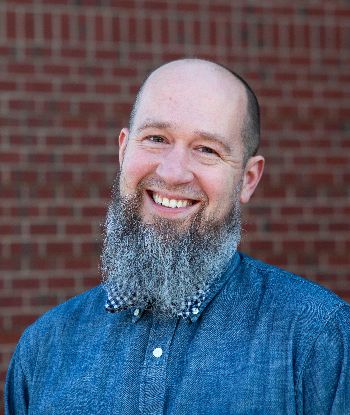Week 1 Reflection

JEREMY ALEXANDER, Ph.D.
INSTRUCTIONAL COACH
ROCHE CENTER FOR CATHOLIC EDUCATION
Beginnings are often difficult, especially in the summertime, when as teachers we may simply want to pause, breathe, and take in the long, slow days and relax. But as we begin this adventure together I want to welcome you into the exciting, challenging, and transforming act of reading a book together by reflecting on two ideas that prime us for reading together.
The first idea comes from a new book I recently finished, Reading for the Love of God by Jessica Hooten Wilson. Throughout the text, Wilson reframes reading from a technical exercise or even an escape from our daily lives to a spiritual exercise. One in which we experience an invitation not just to learn new things or master new techniques, but to encounter ourselves in new ways. To be changed by this encounter and to see ourselves, our world, our students, and even our God in new ways. Reading opens us to others and other possibilities, to think in new ways and to have our vision expanded and challenged. At one point, Wilson claims, “The way we read books will foster a certain imagination, a particular way of reading the world, in which we ascend toward contemplating God and all his graces or descent into utilitarianism and reduced vision” (p. 126). While it might be easy to see how fiction can cause our vision to ascend, can non-fiction, can a book about teaching do this? I wager it can, if we let it. As you read The Age of Identity this summer, I invite you to read for transformation.
The second idea comes from reflecting on the very physical act of reading itself. One of the things I have always found interesting is that silent individualized reading is a fairly modern concept. In both the ancient and medieval worlds reading was out loud and communal, reading together. In medieval schools rooms would be filled with the murmuring of students as they read common texts together. What is more, they would not just read together, they would talk about these texts, comment on them, and have conversations with them. These texts were dialogue partners that were to be engaged with while one engaged with the other readers. With this book study, we are inviting you into a communal act of reading together. To share your ideas and share in the ideas of others. To ask questions and push one another to think more deeply about the text and how it intersects with the craft of teaching and leading that you may occupy.
Here at the Roche Center, our mission is animated by the belief that education is about forming the heart, mind, and soul and in doing this we engage in cura personalis, or “care of the whole person.” And thus, we welcome you to begin with us in the reading of The Age of Identity, but to begin this, not just as another form of professional development or learning for your profession, but to begin as a step in your own formation and the possible formation of others through your vocation.
Cheers,
Jeremy